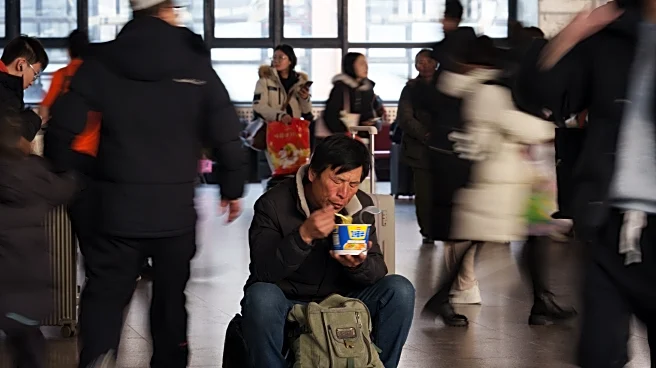What's Happening?
A recent article explores the dynamics of age-gap relationships, highlighting perspectives from psychotherapist Akua K. Boateng and dating coach Sabrina Zohar. Boateng notes that in some cultures, age-gap relationships are seen as exchanges of wisdom
and vitality, requiring mutual agreement and shared values. Zohar, however, expresses discomfort with significant age gaps, citing potential power imbalances and dependency issues. Both experts agree that for such relationships to be healthy, both partners must be adults with established identities and careers. The article also features personal stories from men in age-gap relationships, illustrating diverse experiences and challenges.
Why It's Important?
Age-gap relationships often face societal scrutiny due to perceived power imbalances and dependency issues. Understanding these dynamics is crucial for fostering healthy relationships. The insights from experts like Boateng and Zohar provide guidance on navigating these relationships, emphasizing the importance of mutual respect and equality. This discussion is significant as it challenges stereotypes and encourages a deeper understanding of relationship dynamics, potentially influencing societal attitudes and personal relationship choices.
What's Next?
The conversation around age-gap relationships may continue to evolve as more people share their experiences and as societal norms shift. Experts like Boateng and Zohar may further explore the psychological and social aspects of these relationships, providing more nuanced advice. Additionally, public discourse may lead to greater acceptance and understanding, reducing stigma and promoting healthier relationship practices.
Beyond the Headlines
Age-gap relationships can highlight broader societal issues such as gender roles, power dynamics, and cultural perceptions of relationships. These relationships may also influence discussions on ageism and the value placed on youth versus experience. As society becomes more diverse, the acceptance and understanding of different relationship models may increase, fostering inclusivity and respect for personal choices.

















